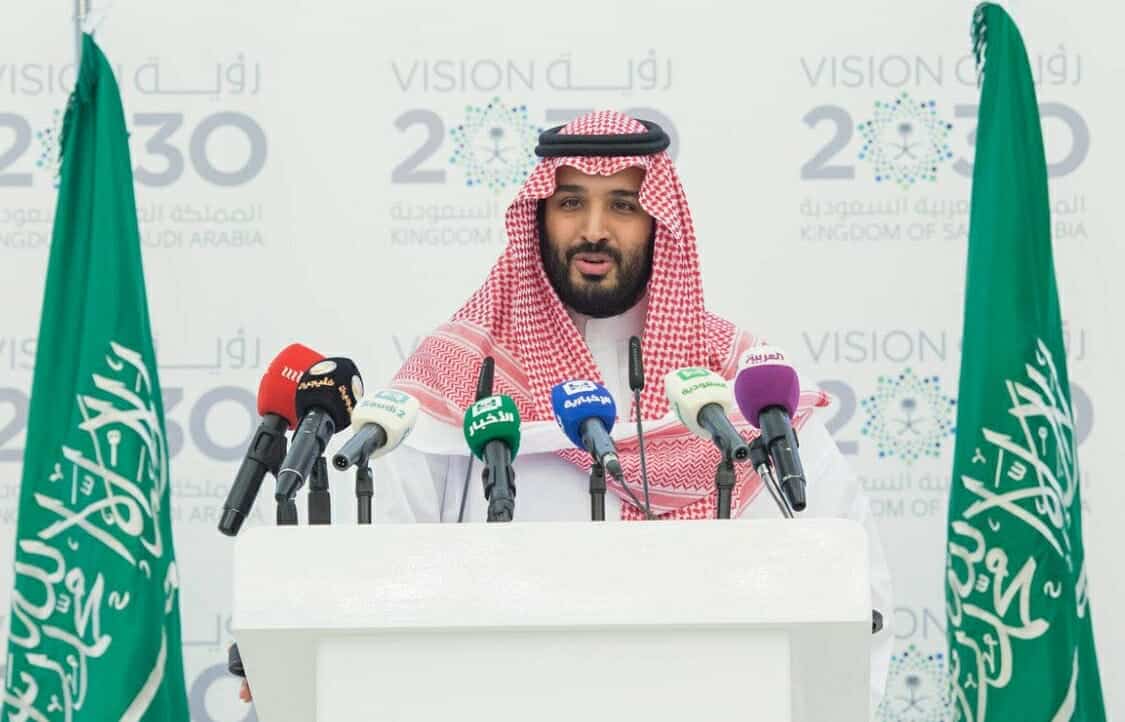Saudi Arabia seeks to attract foreign investment of more than $100 billion annually under a National Investment Strategy (NIS) announced on Monday as part of efforts to diversify the economy.
The strategy is expected to raise annual foreign direct investment flows to 388 billion riyals ($103 billion) and increase annual domestic investment to 1.7 trillion riyals by 2030, the Saudi Press Agency said after Saudi Crown Prince Mohammed bin Salman, the kingdom’s de facto ruler, launched the initiative.
SPA said it will be “a key enabler” of his Vision 2030 plan, announced in 2016 to diversify the economy of the world’s biggest oil exporter.
“Today, the kingdom embarks on a new investment era to empower Saudi and international private-sector investors with more and better opportunities,” SPA quoted Prince Mohammed as saying.
He added that “the NIS will draw up comprehensive investment plans for sectors, including manufacturing, renewable energy, transport and logistics, tourism, digital infrastructure, and health care,” SPA said.
Among its measures the strategy is to establish special economic zones with competitive regulations and incentives, transfer strategic supply chains to the kingdom, and develop new financing solutions for the private sector to promote capital formation, according to SPA.
The NIS is expected to contribute to the growth and diversification of the Saudi economy, which in turn will achieve several Vision 2030 goals.
The goals — set for 2030 — include raising the private sector’s contribution to GDP to 65 percent, increasing the contribution of FDI to GDP to 5.7 percent, and increasing the contribution of non-oil exports to GDP from 16 percent to 50 percent
They also include reducing the unemployment rate to 7 percent, and positioning Saudi Arabia among the top 10 economies in the Global Competitiveness Index.
Prince Mohammed, who is also the country’s deputy prime minister and chairman of the Council for Economic and Development Affairs, emphasized the importance of investment in driving the economic growth and sustainable development targeted under Vision 2030.
He said more than SAR12 trillion ($3.2 trillion) would be injected into the national economy through investment activity by 2030.
The Shareek program initiatives are expected to inject SAR5 trillion ($1.33 trillion), and the Public Investment Fund SAR3 trillion ($80 billion), with the remaining SAR4 trillion ($1.07 trillion) generated by investments facilitated by the NIS.
Further, the economy is expected to receive SAR10 trillion ($2.67 trillion) through government spending during the next 10 years and a further SAR5 trillion ($1.33 trillion) from private consumption spending in the same period.
This is said to represent a total injection of SAR27 trillion ($7.2 trillion) in the next decade.
With the achievement of these goals, the investment contribution to GDP is expected to increase from 22 percent in 2019 to 30 percent by 2030, making the economy of Saudi Arabia one of the 15 largest in the world.
The NIS is also expected to raise annual FDI flows to SAR388 billion ($103.47 billion) and increase annual domestic investment to SAR1.7 trillion ($286.33 billion) by 2030.
The NIS will reportedly drive investment in Saudi Arabia by enhancing the business environment, increasing investment attractiveness and competitiveness, instigating key regulatory and legislative measures, connecting investors with investment opportunities, offering incentive packages for selected projects and attracting regional headquarters.
It is also expected to help local companies position their products and services successfully in regional and global markets.
The NIS is said to complement the investment strategies of various Vision Realization Programs such as the Public Investment Fund Program, the National Industrial Development and Logistics Program, the Privatization Program, the Financial Sector Development Program, and the Quality of Life Program.
The strategy reportedly includes initiatives such as establishing special economic zones with competitive regulations and incentives that attract investments in priority sectors, and a program to transfer strategic supply chains to KSA and acquire a market share in supply chain components.
It also has initiatives that diversify funding options including developing new financing solutions for the private sector to promote capital formation, as well as the enhancement of “Invest Saudi” as the national platform for presenting and marketing investment opportunities in Saudi Arabia.
Prince Mohammed, while launching the NIS, was quoted by the Saudi Press Agency as saying: “Investment is without a doubt one of the main routes for us to achieve the ambitions and aspirations of Vision 2030, among them economic development, diversification and sustainability; technology transfer and localization; infrastructure development; better quality of life; job opportunities and the upskilling of our human resources, leaving a legacy of prosperity for future generations.”
He added: “The National Investment Strategy is all about empowering investors, offering investment opportunities, providing financing solutions, and enhancing competitiveness. It also clarifies the partnership between the public and private sectors, as our mission is now to open the door to the private sector and allow it to grow and prosper.”
The prince also said the NIS would draw up comprehensive investment plans for sectors, including manufacturing, renewable energy, transport and logistics, tourism, digital infrastructure, and healthcare.
Since 2017, Prince Mohammed has introduced sweeping economic and social changes, including allowing women to drive, the reopening of cinemas, and permitting mixed-gender music concerts and other entertainment options. (With AFP inputs)

